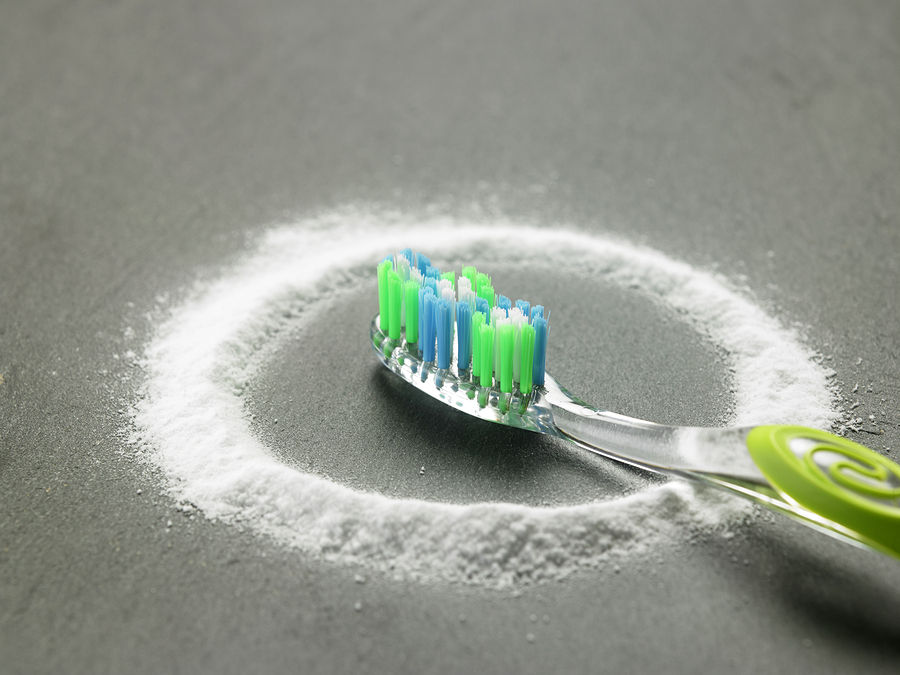Is Baking Soda Safe For Your Teeth?
- Dr. Duke Bui
- Aug 20, 2018
- 3 min read

Sodium bicarbonate, better known as baking soda, is a popular at-home teeth whitening solution. It’s also been used as a simple toothpaste substitute for decades.
But just because this DIY dental remedy is commonly used doesn’t make it safe. How does baking soda affect your teeth?
Baking soda has both risks and benefits for your oral health. It all depends on how you use it.
Baking Soda for Brushing
There are a surprising number of benefits to using baking soda in your dental care routine.
For starters, the sodium in baking soda has mild antimicrobial properties. It can inhibit the growth of some bacteria that are responsible for gum inflammation and bad breath.
Baking soda is quite basic on the pH scale. This means it can neutralize acids. Rinsing with baking soda water or brushing with the powder itself can help balance out the pH of your mouth after eating an acidic food or after an episode of vomiting. If your mouth stays acidic for too long, your teeth will start losing enamel so a baking soda rinse is a great way to protect your teeth.
The abrasive grittiness of baking soda makes it perfect for scrubbing away sticky plaque and stubborn stains. Baking soda’s ability to brighten teeth this way is probably it’s most popular feature.
It almost goes without saying, too, that baking soda is a very cheap toothpaste substitute.
So with all of these benefits, why shouldn’t you use baking soda more often?
Baking soda has a dark side you need to know about.
The Dangers of Baking Soda
Baking soda’s gritty powder may clean teeth and buff away stain, but it’s also a bit problematic.
Brushing with baking soda can be a messy affair. There’s also a risk of gagging on the powder if you accidentally inhale a bit while brushing in a hurry.
The worst thing about baking soda is how it’s abrasiveness can harm your smile. It can cause gums to recede and wear away the surface layer of your enamel. Scrubbing your teeth too hard or too often with baking soda can cause permanent damage.
There is another hidden danger of sodium bicarbonate: the deceptive idea that baking soda is healthy for your teeth. Given that it’s chemical- and soap-free, many people feel that sodium bicarbonate is a healthful tooth cleaner.
The problem, however, is that baking soda doesn’t contain any fluoride which is the key ingredient in traditional toothpastes. Fluoride strengthens tooth enamel and prevents decay, but baking soda doesn’t have any such benefits. If you use it in place of regular fluoridated toothpaste, you’re denying your teeth some much-needed cavity protection.
Additionally, baking soda can weaken orthodontic glue so you shouldn’t use it if you have braces or a fixed retainer.
Can You Bleach Your Teeth with Baking Soda?
Even if you can’t brush with baking soda every day, you might wonder whether it’s good for whitening teeth.
Sodium bicarbonate can lighten tooth color, but its effects are quite limited. It only works through mechanical abrasion as the tough particles scrub out surface pigment. Baking soda cannot access discoloration that’s deep inside enamel pores so it doesn’t actually bleach teeth.
If you’re searching for effective teeth bleaching methods, then you should look for something more professional than baking soda.
Ultimately, brushing with baking soda is safe when done on occasion. As long as you don’t use it often, you can enjoy its benefits to the full with no harm to your teeth.
Learn more about safe baking soda use in oral hygiene by planning a consultation with a Tacoma dentist. The team at Duke N. Bui, DDS, PS - Family Dentistry will also be happy to help you find a teeth whitening system that gets you the results you want.





















